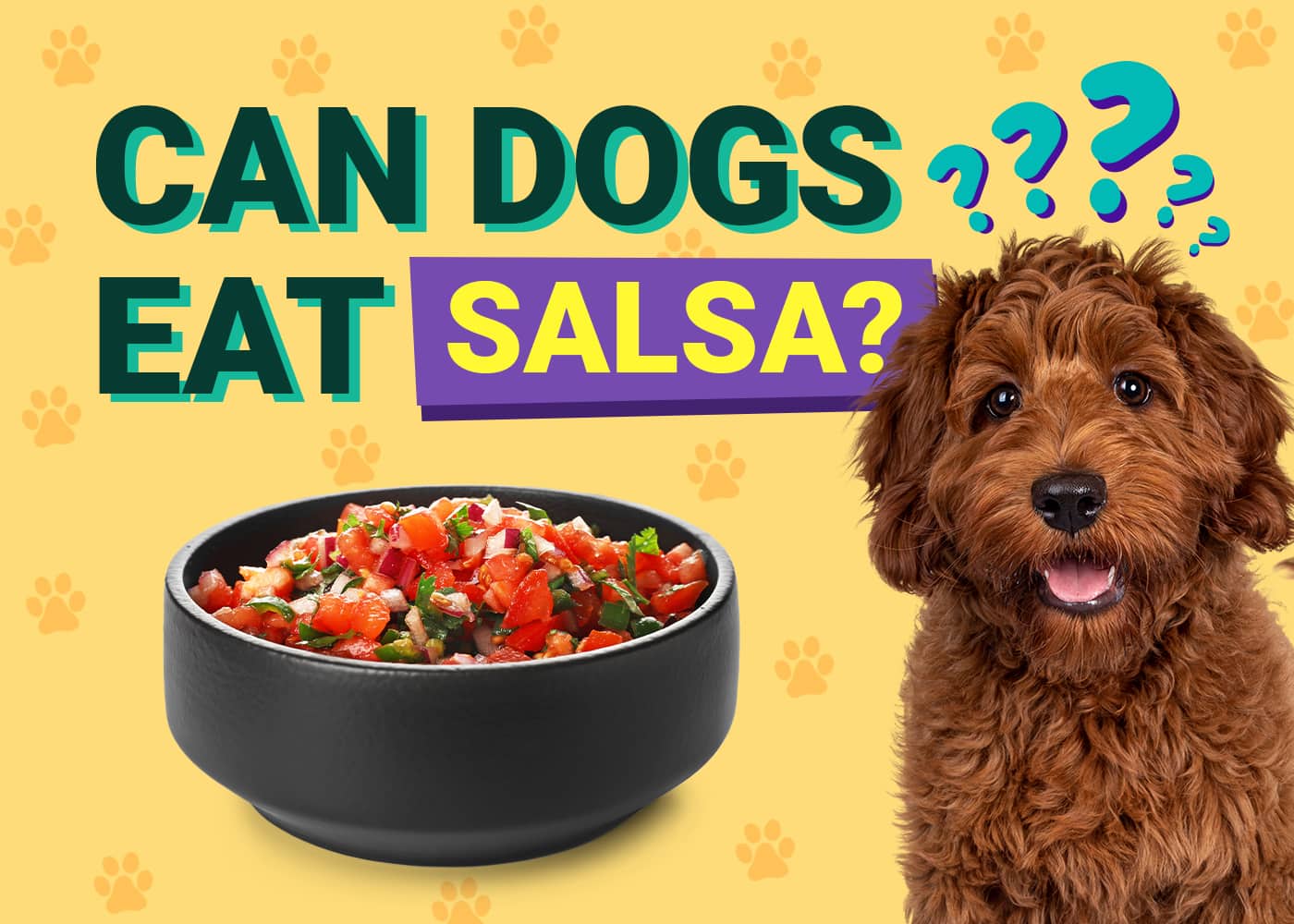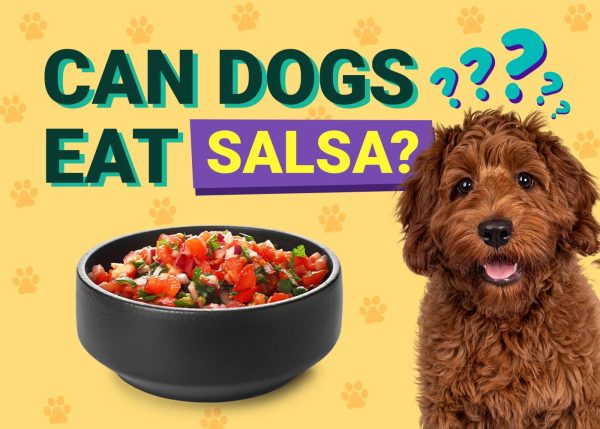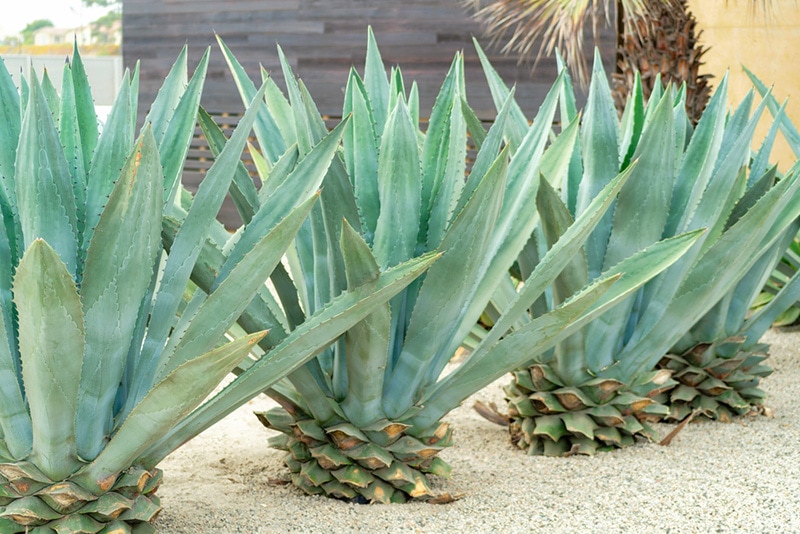Salsa is a spicy relish composed of tomatoes, peppers, herbs, limes, onions, and spices. It’s usually paired with tortilla chips as an appetizer, but it can also be used as a topping or filling for tacos, enchiladas, or burritos. Salsa is created for human consumption and is not intended for animals like dogs to eat.
Salsa sauce has become so popular that you might be wondering whether you can give your canine companion a taste. Perhaps you think it will make your dog’s food more flavorsome, or the meal you want to give your dog already contains salsa.
Well, the short answer is that dogs should not eat salsa because it contains several ingredients that are toxic to dogs. Read on below to find out more.

Can Dogs Eat Salsa?
No, you should not let your dog eat salsa. Salsa contains ingredients from the allium genus that are toxic to dogs, and it’s not a healthy snack for dogs. Salsa is typically made from tomatoes, onions, garlic, chilies, and lime. Not every type of salsa will have these ingredients, but it usually contains at least two of them.
Store-bought salsa will have more preservatives and flavor enhancers than homemade salsa, but both are unsuitable for dogs.

Why Can’t Dogs Eat Salsa?
By examining each ingredient, we’ll show you why salsa is not healthy or safe for dogs.
Tomatoes
The main ingredient in salsa is tomatoes, which are not necessarily unhealthy for your dogs and can be found in many dog foods. Tomatoes are a source of lycopene, which is a healthy antioxidant for dogs if the tomatoes are fed appropriately. However, tomatoes are quite acidic, which can upset your dog’s stomach. Eating too many tomatoes can cause your dog to suffer from mild stomach discomfort.
Onions
Dogs should not eat onions since they are toxic. They are part of the allium genus, which includes garlic, leeks, and chives. Onions contain N-propyl disulfide, which is toxic to dogs and can bind your dog’s red blood cells, leading to hemolytic anemia.
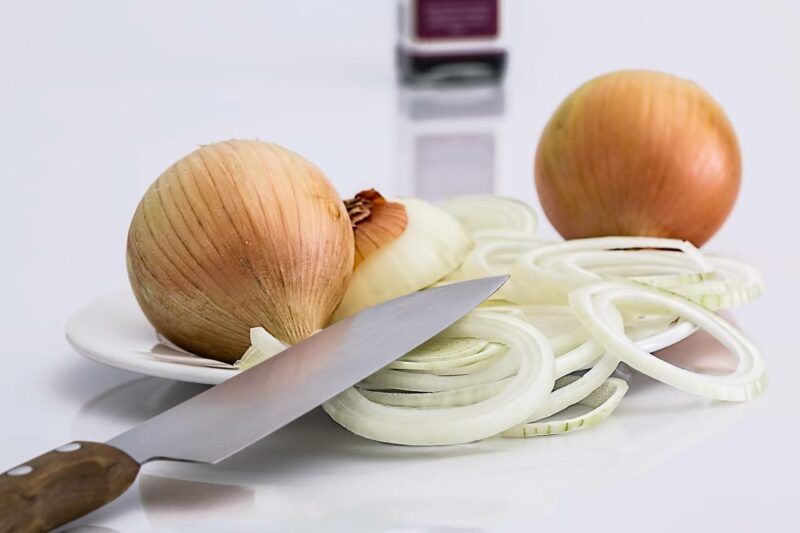
Garlic
Garlic is not safe for dogs and is considered toxic. Garlic is even more potent than onions, making it an ingredient you do not want to feed to your dog. Garlic contains allicin, an oxidant and type of thiosulfinate that is not good for dogs. Just like with onions, dogs who consume garlic can develop hemolytic anemia. This can happen a few days after ingestion, and it requires veterinary treatment.
Seasonings
Most salsas contain seasonings such as salt or paprika, which are not healthy for dogs. These seasonings are added to food to make it taste better for humans, but they don’t benefit dogs. Too much salt is not good for dogs and is dangerous in large amounts. Paprika can be too spicy for dogs and irritate their stomachs. It also contains solanine, which is toxic to dogs.
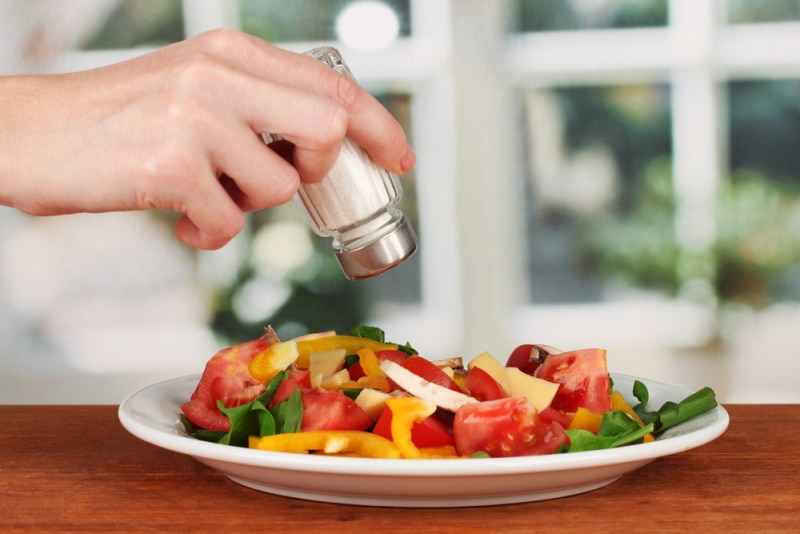
Lime
Lime adds a citrusy taste to salsa, but it is not a good ingredient for dogs. Lime juice is very acidic and can upset your dog’s stomach if it is ingested due to its high citric acid content.
Chilies
Spicy salsa gets its tangy flavor from chili peppers, which irritate your dog’s stomach, esophagus, and mouth. Chilies contain capsaicin which causes a burning sensation.

What Happens If Your Dog Eats Salsa?
If your dog has already ingested salsa, do not panic. A small amount will not do much harm, but you should still take them to the veterinarian to err on the side of caution. Your dog may experience an upset stomach, which can happen due to the spiciness of the chilies and acidic ingredients.
The main worry for a dog who has consumed salsa is that onions and garlic—two common ingredients in this relish—are toxic to dogs. Your dog’s veterinarian will be able to advise you on the signs to watch for while helping to alleviate any burning sensation or gastrointestinal discomfort your dog may be experiencing.

Conclusion
Overall, the combination of acidic tomatoes that make the bulk of the salsa sauce, along with seasonings, onions, garlic, and chilies, make salsa a non-safe food for your dog. Acidic foods such as lime and tomatoes can upset your dog’s stomach, while ingredients such as onions and garlic are toxic. If the salsa contains hot chilies, your dog’s stomach discomfort from the acidic foods will worsen.
For that reason, we recommend you avoid feeding salsa to your dog.
See Also:
- Can Dogs Eat Kimchi? Vet-Approved Facts
- Can Cats Eat Beef Wellington? Vet Reviewed Facts & FAQ
- Can Dogs Eat Boba? Vet Reviewed Facts & FAQ
- Can Dogs Eat Tahini? Vet Reviewed Facts & FAQ
- Can Dogs Eat Teriyaki Sauce?
Featured Image Credit: Foodio, Shutterstock

